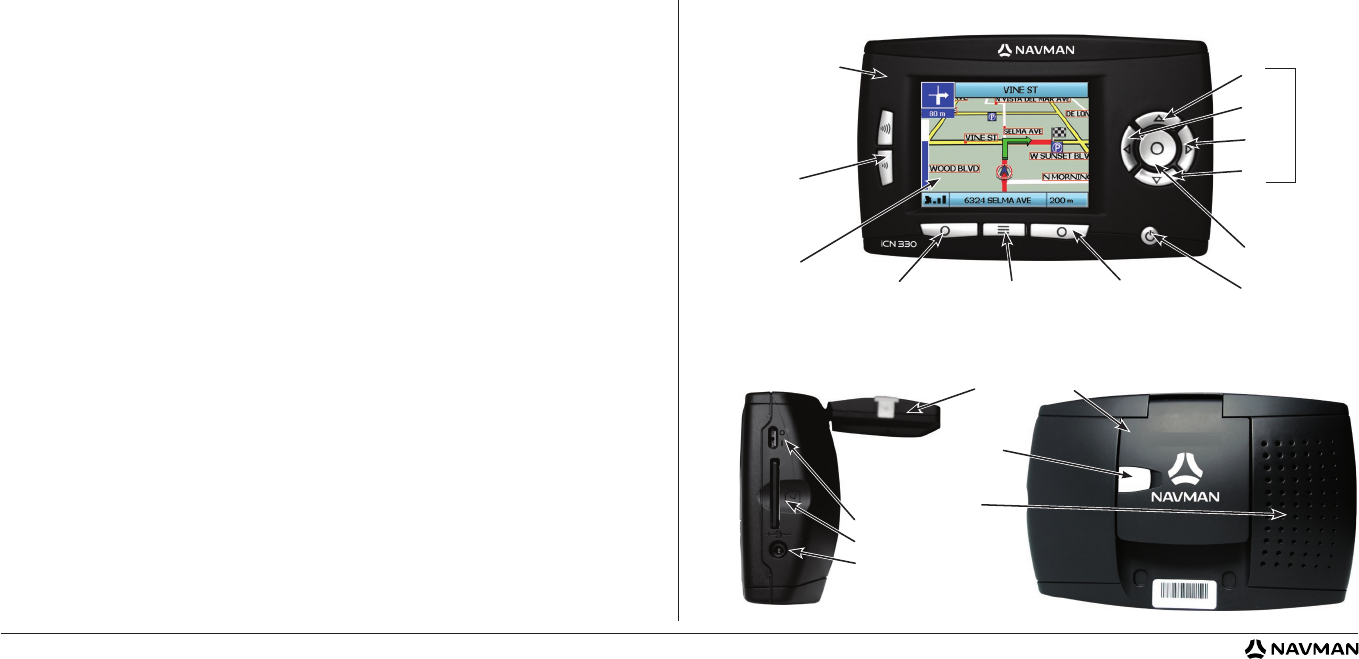
5
Side Components Back Components
Memory Card Slot
Fold-out GPS Antenna
Power
Supply Socket
Battery Switch
Integrated Speaker
External Antenna Socket
(external antenna not included*)
Volume Buttons
Color Screen
Left Selection Button Right Selection ButtonHome Button
Down
OK Button
Power Button
Up
Left
Right
4-Way Toggle
* Available for purchase separately - see Accessories Brochure
1. Introduction
Welcome
Thank you for purchasing the Navman iCN. This user manual has been prepared to guide you through the operation of your Navman iCN from first set-up
through to continuous use. Please read this manual carefully before using your device for the first time. Keep this manual available for future reference.
How Your iCN Works
The Global Positioning System (GPS) is a network of satellites that transmit accurate time and position information worldwide. GPS receivers receive signals
from these satellites and use the information to determine an exact location. Satellites orbit the earth at 20,200 kilometers (around 12,000 miles). While a
GPS receiver can detect signals from up to 12 satellites at any time, only three signals are needed to provide a position or “GPS fix” (latitude and longitude) for
vehicle navigation systems. Your iCN GPS antenna receives GPS signals and uses these to calculate your position on the maps stored on its memory card. To
receive GPS signals, ensure that the iCN is outdoors, or in a vehicle outdoors, and the GPS antenna has an unobstructed view of the sky. The iCN can operate
in all weather types except extreme precipitation (rain, snowfall).
The first time you switch on your iCN, it may take a few minutes to get a GPS fix. This may also be the case when you activate your iCN after the battery has
completely drained.
For more information about GPS and your iCN, see page 13 of this manual or consult the GPS Navigation Frequently Asked Questions guide.
Interchangeable Faceplate
(alternate faceplates not
included*)
Front Components


















